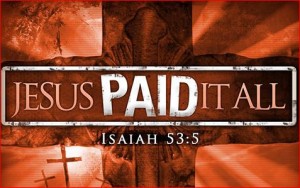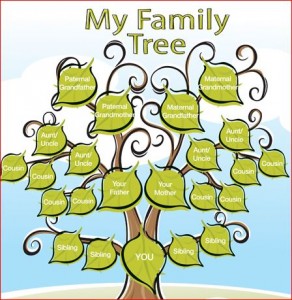I’ve quoted Jeremiah 29:11 more than any other verse I can think of. It begins, “I know the plans I have for you, declares the Lord….” It’s clear that God has a plan for us. It’s His divine formula specifically designed for each  and every one of us personally to bring about the greatest good for our lives. Another verse that I’ve quoted frequently is Romans 8:28. It says, “God works all things together for good…” As I look back (and even as I reflect on my current life affairs) I really don’t always think or act like I believe that. What I really believe is that God works “most” things together for good. Or maybe, he just works “some” things together for good.” Actually the things that we can’t imagine as working out for our good are the things that usually bring about the greatest good in the end. As I look back I see that it really did work out that way. Well, if the Bible says it, and the past affirms it, why do I still struggle with it? Paul begins this verse by saying, “we know that God works all things together for good…” If we “Know it” why is it so hard to believe it!
and every one of us personally to bring about the greatest good for our lives. Another verse that I’ve quoted frequently is Romans 8:28. It says, “God works all things together for good…” As I look back (and even as I reflect on my current life affairs) I really don’t always think or act like I believe that. What I really believe is that God works “most” things together for good. Or maybe, he just works “some” things together for good.” Actually the things that we can’t imagine as working out for our good are the things that usually bring about the greatest good in the end. As I look back I see that it really did work out that way. Well, if the Bible says it, and the past affirms it, why do I still struggle with it? Paul begins this verse by saying, “we know that God works all things together for good…” If we “Know it” why is it so hard to believe it!
I am often such a “Jacob.” Remember In Genesis, when Simeon had been left behind in Egypt, and his brothers now wanted to take Benjamin, his precious son, back to Egypt with them, Jacob said, “All things are working against me” (Genesis 42:36). It’s easy to fall into the slump of the problems of the present and look around at “all things” as piling up against us like Jacob did. You and I can take comfort sometimes from Jacob’s lapse of faith. I find myself slipping into that thinking sometimes and I have to remind myself what happened to Jacob. Not only did he not lose his precious son Benjamin, but also Simeon was returned to him and what’s even more amazing his son Joseph after many years is still alive and well and he’s returned to him also. Oh, yea! God does work all things together for good. Even when, no, especially when!, it doesn’t look like it.
I’m studying Philemon for our Good Friday service and verse 15, struck me and brought the above thoughts to mind. As Paul urges Philemon to welcome back Onesimus as a brother rather than the vile slave who robbed him and ran off to Rome, he says, “Perhaps the reason he was separated from you for a little while was that you might have him back for good.” Paul acknowledged that this whole episode in Philemon’s life was ultimately the result of God’s formula. The useless (That’s what Onesimus means) servant will now become a usefull brother for Philemon. Onesimus fled to escape his master and lose himself in the teeming gutters of Rome, only to meet the very man (Paul) that his former master, Philemon, owed his spiritual life to. Onesimus thus found spiritual life also. Someone once said, “No pharmacist ever weighed out medicine with half as much care and exactness as God weighs out every trial he dispenses. Not one gram too much does he ever permit to be put on us.”







